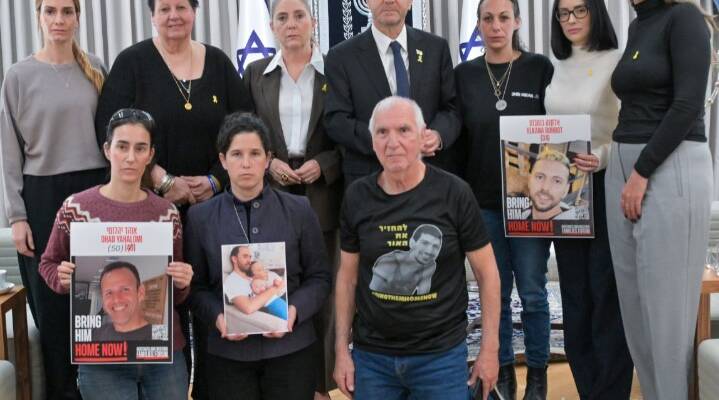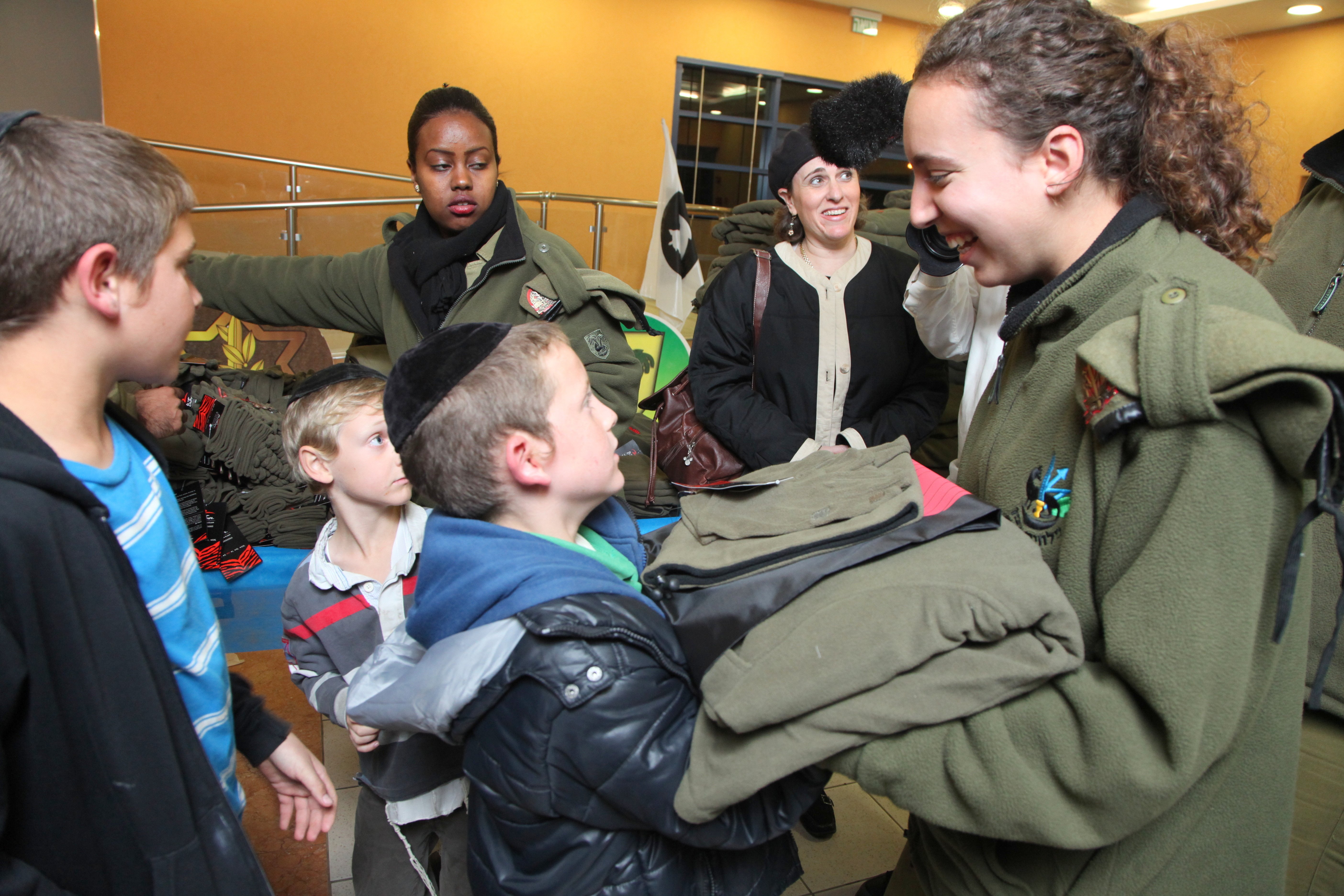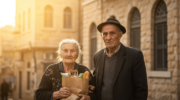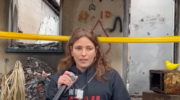Noa Argamani, who survived Hamas captivity, shared a chilling account of her time in confinement.
By Pesach Benson, TPS
The stories of survivors of Hamas captivity took center stage during an emergency discussion on the medical fate of the Israeli hostages. The Jerusalem event, convened by Israeli President Isaac Herzog, coincided with International Human Rights Day.
“We are marking 431 days of the most unimaginable violations of human rights. Today, on International Human Rights Day, not a single right has been upheld by the criminal and terrorist organization Hamas. The entire world must cry out with all its might against this heinous organization and its flagrant violations of human rights,” Herzog said.
But the medical experts, government officials and relatives of hostages were moved as Noa Argamani and Yocheved Lifshitz recounted their experiences in Gaza.
Noa Argamani, who survived Hamas captivity, shared a chilling account of her time in confinement. Hamas abducted Argamani from the Nova Music Festival. Israeli forces rescued her in June.
“The video shown here was published in January. After an Air Force missile struck the building where I was held, I was left bleeding, with my head open, and no one came to help me—not the Red Cross, not doctors, no one,” she said.
“Doctors called my survival a medical miracle, but there are still 100 abductees out there. They didn’t have the chance to post a video or tell their stories. We don’t know what their condition is, but it might be even worse than mine.”
She received no medical care in captivity.
“Even though I had visible injuries, I didn’t receive treatment. Others may not survive the winter. Time is running out.”
Yochaved Lifshitz, another survivor, recounted her 17 days in captivity with vivid detail. “I lost five kilos in those 17 days, and my blood pressure hit the floor. If I had been held for 50 days, I would have come back in a coffin,” she said.
Her survival, she revealed, was largely due to her existing medical condition. “They decided they didn’t want me to be there because of my illness. Otherwise, I might not have made it.”
Said Lifshitz, “Those days were too long in darkness. Every moment felt like an eternity.”
Her grandson, Daniel Lifshitz, speaking on behalf of the families of the abductees, described the anguish of uncertainty. “Right now, there are 100 people who had all their basic rights stripped away by a monstrous terrorist organization. The only right they hold is the hope that they will be released.”
Lifshitz stressed the moral obligation to bring them home. “This is not just a national duty—it’s a human one. These families have endured 431 days of unimaginable suffering, not knowing the fate of their loved ones. The only way to heal this wound is by bringing them back. We cannot afford to lose any more time.”
Medical professionals also said bringing the hostages home was urgent.
“The tunnels are dark, suffocating spaces with no ventilation, poor hygiene, and extreme humidity. Hunger, lack of medical care, and the cold winter ahead are death sentences for these people,” said Dr. Amir Blumenfeld, the former chief of the Trauma and Combat Medicine Branch of the Israeli military’s Medical Corps.
According to Professor Hagai Levine, who heads the Hostages Families Forum’s health team, “The severe situation affects not just the hostages; the impact is multi-dimensional. It affects the hostages themselves, their families, their immediate community, and all of Israeli society… Looking at the hostages’ faces, their health is deteriorating and they might not survive the coming winter.”
At least 1,200 people were killed, and 252 Israelis and foreigners were taken hostage in Hamas’s attacks on Israeli communities near the Gaza border on October 7. Of the 97 remaining hostages, more than 30 have been declared dead.
Hamas has also been holding captive two Israeli civilians since 2014 and 2015, and the bodies of two soldiers killed in 2014.
Keep Israeli Soldiers Warm - Send Winter Jackets!
We are honored to thank the young men and women of the IDF who risk their lives every day to defend the citizens of Israel.
Join us in sending winter care packages and personal notes of support to Israeli soldiers who are out in the cold all day.
Warm up a soldier's heart with essential winter wear including fleece jackets, hats, gloves and more. Keep an entire unit warm!
THE SOLDIERS REALLY APPRECIATE YOUR LOVE AND CONCERN!























